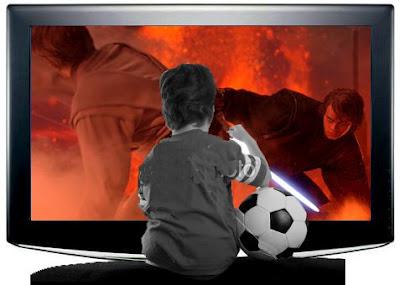Of course, all of these rules apply for "normal" kids. But how different is it for kids with special needs, and in particular, those with asperger's syndrome? Should they be afforded more time on these devices? Less? -- or is their diagnosis irrelevant in this case?
In this series, I present my thoughts on the matter.

The Needs of Children with Asperger's Syndrome
Children with aspergers syndrome and other ASD's often have vastly different needs to their neurotypical counterparts. Chief among these needs is the need for visual and experiential learning.
While most kids can easily follow classroom conversation and can easily separate the teacher's jokes and the general buzz of conversation from the teaching material of the day - many children with Aspergers Syndrome can not.
For these children, gestures, tone and implied statements lose their meaning and even much of the blackboard conversation is lost. If your child with asperger's has co-conditions such as ADHD, dyslexia, learning difficulties or sight, tracking or hearing issues then the problem is further complicated as they struggle to copy text from the board before it is erased and write sentences before the material is forgotten. If they miss something, there is no going back.
These kids benefit from repeated experiential and visual learning. It's one of the areas in which television, computers and audio devices excel. I've discussed at length before about how historical movies can teach history to visual learners far more effectively than classroom discussions. The same is true for computers, particularly math applications and even audiobooks, iPads and phones.
Clearly the media has a big part to play in educating our special needs children and clearly it's very effective when used correctly.
How Kids with Aspergers pick up social skills from the Media
Forgetting the academic side for a moment, the media, particularly television and movies, also has a big part to play in teaching your kids social skills. You may have noticed your child quoting Star Wars in answer to a question. The quote was probably in context and used at least half-jokingly. It's sill a perfect example of how your child is bringing their social learning from the media into everyday life.
It's well worth exposing your older children to realistic drama, sitcoms and romantic comedies so that they gain an understanding of the sorts of things that are expected in relationships; what should be said, how to express empathy and how to say sorry. Younger viewers won't have the attention span for these types of films but their older siblings certainly will.
There's a lot of literature about how violent movies make their viewers violent. I can see the point of the discussion but I don't entirely agree. I believe that provided that kids understand the difference between reality and fiction, they can usually escape most unaffected - though clearly these sorts of films do have a desensitizing effect.
I do however fully support the notion that exposing kids to obnoxious comedy can make them less socially acceptable. So much of today's "comedy" relies on fart jokes, crude language and getting one's "tackle" out. Yes, Ben Stiller, Rob Schneider, Adam Sandler, Mike Myers, Seth Rogen and the Wayans brothers - I'm clearly looking at you.. It's a big problem because far from teaching our asperger's children how to behave responsibly in social settings, these films are arming them with the worst kind on humor.
I can clearly remember walking around the playground at school in my youth spouting "monty python" quotes, many of which were borderline (or worse) in terms of language. How much worse would it be if the kids were quoting from the comedies of today? Yes, it's funny and yes it has a place but it has to be monitored and filtered to make sure that it doesn't become part of your child's language.
Further Adverse Effects
The quoting example is only the tip of the iceberg because when we were young, you generally watched the entire movie in context. These days kids can use youtube to rewatch funny but offensive parts of films over and over again.
There's more to come but I realize that this is already a long post. In my next post, I want to look at the good and bad effects of books, computers and video games.

